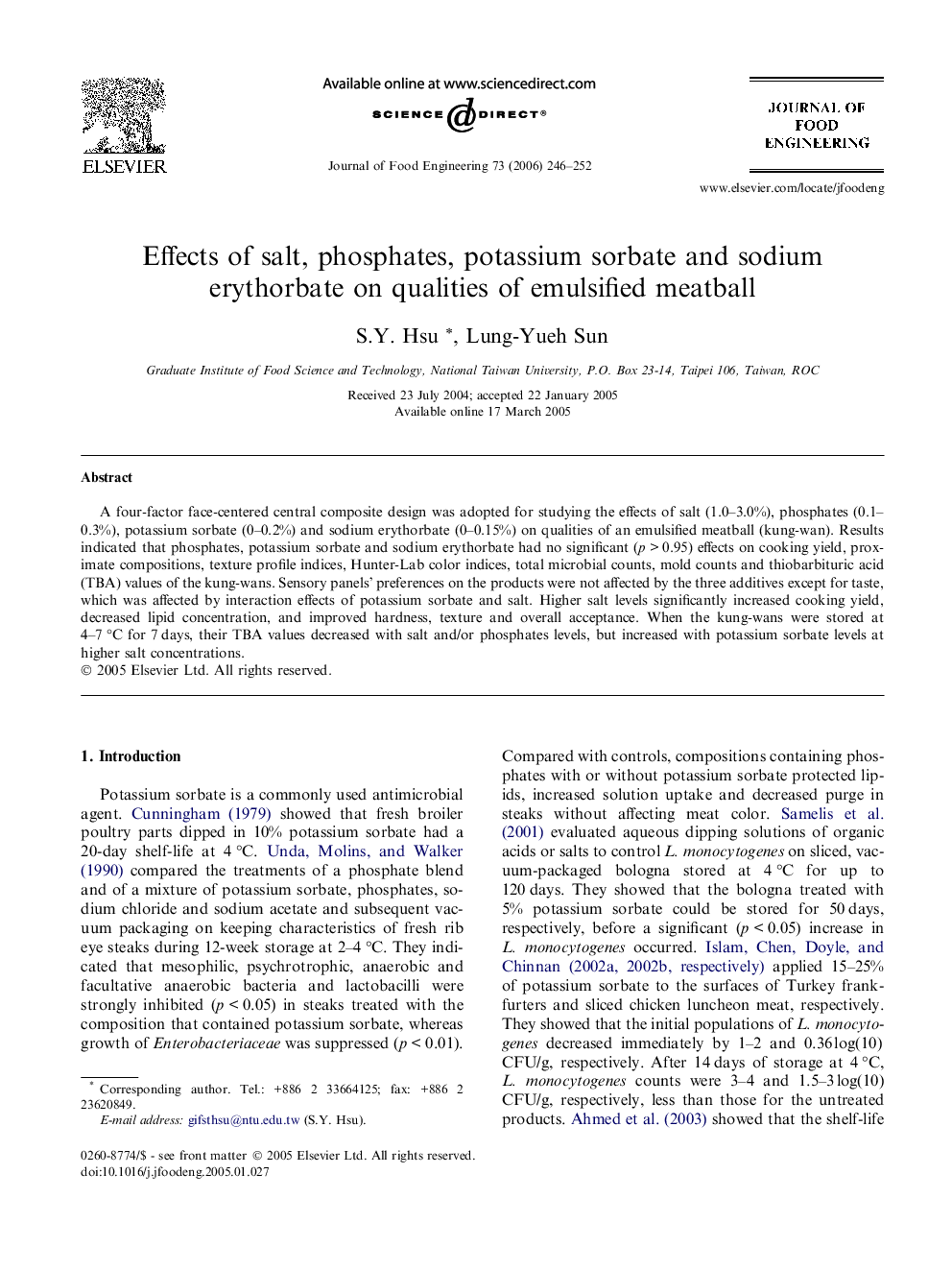| Article ID | Journal | Published Year | Pages | File Type |
|---|---|---|---|---|
| 225141 | Journal of Food Engineering | 2006 | 7 Pages |
A four-factor face-centered central composite design was adopted for studying the effects of salt (1.0–3.0%), phosphates (0.1–0.3%), potassium sorbate (0–0.2%) and sodium erythorbate (0–0.15%) on qualities of an emulsified meatball (kung-wan). Results indicated that phosphates, potassium sorbate and sodium erythorbate had no significant (p > 0.95) effects on cooking yield, proximate compositions, texture profile indices, Hunter-Lab color indices, total microbial counts, mold counts and thiobarbituric acid (TBA) values of the kung-wans. Sensory panels’ preferences on the products were not affected by the three additives except for taste, which was affected by interaction effects of potassium sorbate and salt. Higher salt levels significantly increased cooking yield, decreased lipid concentration, and improved hardness, texture and overall acceptance. When the kung-wans were stored at 4–7 °C for 7 days, their TBA values decreased with salt and/or phosphates levels, but increased with potassium sorbate levels at higher salt concentrations.
